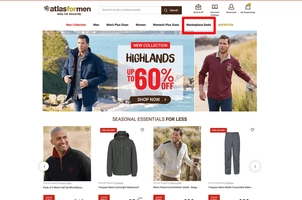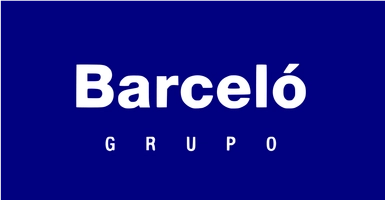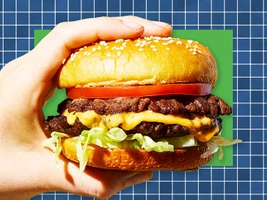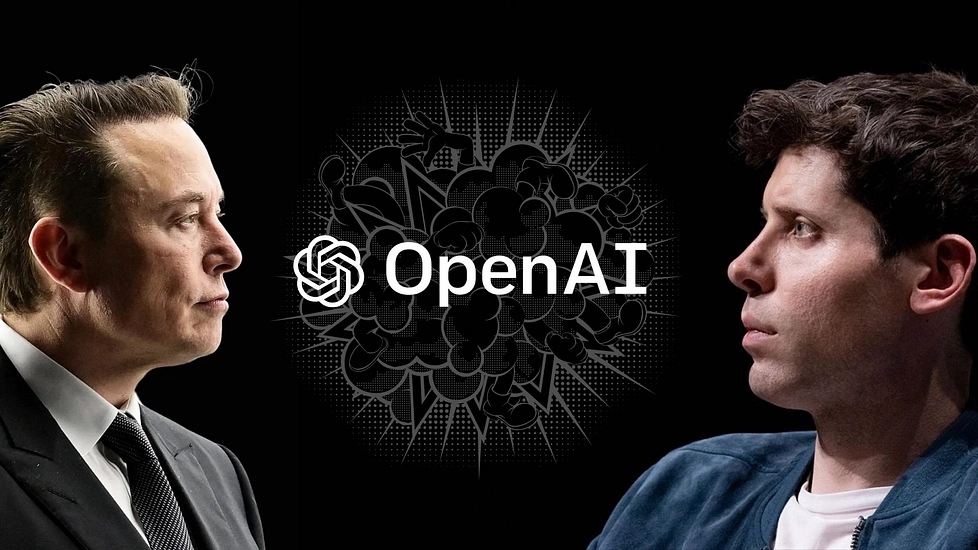
Table of Contents
- Well, What's OpenAI?
- Musk's Departure
- OpenAI After Musk
- The Lawsuit
- Allegations of Betrayal and Commercialization
- Criticism and Shift to Profit-Centricity
Update (13th June):
After the case filed in February, Musk recently decided to withdraw the lawsuit against OpenAI accusing them of betraying their original mission of developing artificial intelligence for the benefit of humanity rather than monetary gains.
The reason behind the lawsuit withdrawal is not publicly known, but we keeping an eye on the whole situation and will update you when the information rolls out.
Update (May 22):
The ongoing legal battle between Elon Musk and OpenAI has witnessed notable developments in the past two weeks. On May 8, 2024, the judge originally presiding over the case disqualified himself following a challenge from Musk's legal team, citing a California state law that allows such an action if impartiality is in question.
Furthermore, Elon Musk, the CEO of Tesla, has publicly criticized the company's latest AI model, GPT-4o. In a series of comments, Musk stated that the demonstration of the new model "made me cringe," revealing his unimpressed stance toward OpenAI's recent offering. Musk's criticism comes amid an ongoing feud with OpenAI.
The new GPT-4o model, showcased by OpenAI, boasts improved voice and vision capabilities, allowing users to communicate with the digital assistant both verbally and visually. Amidst the criticism surrounding OpenAI's latest release, Musk also teased a "major upgrade" for Grok in the near future.
Elon Musk has escalated his long-standing dispute with OpenAI by filing a lawsuit, alleging that the AI research organization he helped establish in 2015 has forsaken its non-profit origins in pursuit of profit. This legal battle is mounting tensions between Musk and OpenAI, spotlighting a rift over the company's direction and ethical commitments to AI development.
At the heart of the controversy is Musk’s accusation that OpenAI, under the stewardship of CEO Sam Altman, has veered away from its foundational goal of advancing artificial general intelligence (AGI) for the collective good, instead aligning closely with corporate interests, notably Microsoft.
Well, What's OpenAI?

In 2015, Elon Musk and Sam Altman founded OpenAI with a mission to guide AI development for humanity’s benefit, backed by a $1 billion endowment. Initially focusing on AI for video games, their work evolved rapidly, from basic learning algorithms to the Generative Pre-trained Transformer (GPT) development, revolutionizing human-computer interaction with AI's ability to generate human-like text.
By 2018, the significance of GPT underscored AI's potential in complex tasks. Recognizing the need for sustainable funding to pursue their ambitious goals, OpenAI transitioned to a 'capped' profit entity in 2019 as OpenAI LP, maintaining its mission within the framework of OpenAI Inc. This shift attracted substantial investment from Microsoft, granting them exclusive access to some of OpenAI's technologies.
Musk's Departure
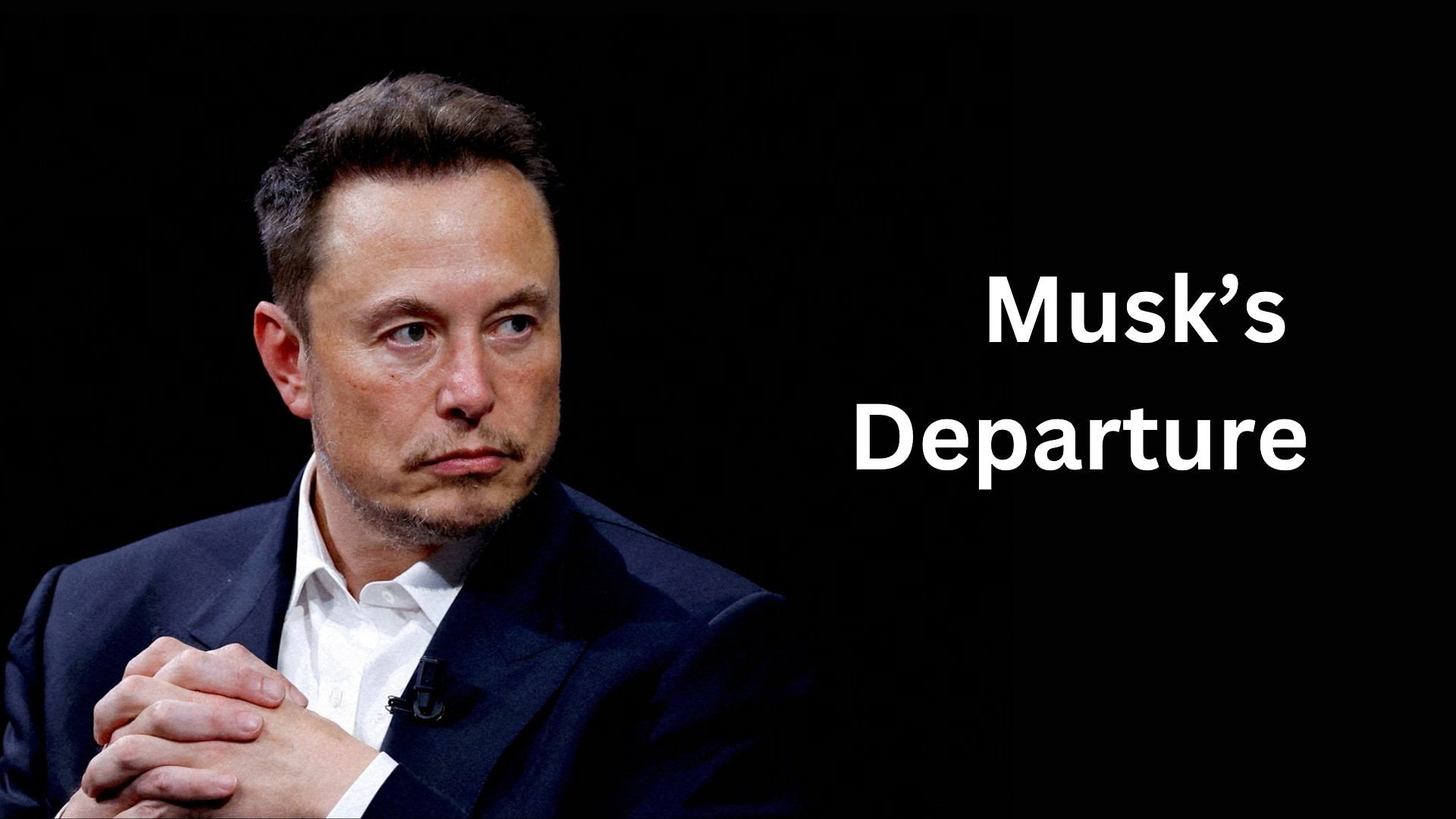
In 2019, OpenAI transitioned to OpenAI LP, adopting a more business-oriented approach while still focusing on its mission. During this period, Elon Musk criticized OpenAI for straying from its original goals and for falling behind in the AI race against giants like Google. Musk proposed leading OpenAI himself, a suggestion that led to a split among its leadership and resulted in Musk ending his financial support and severing ties with the organization.
However, the aftermath of Musk's exit propelled OpenAI towards a transformative phase.
OpenAI After Musk
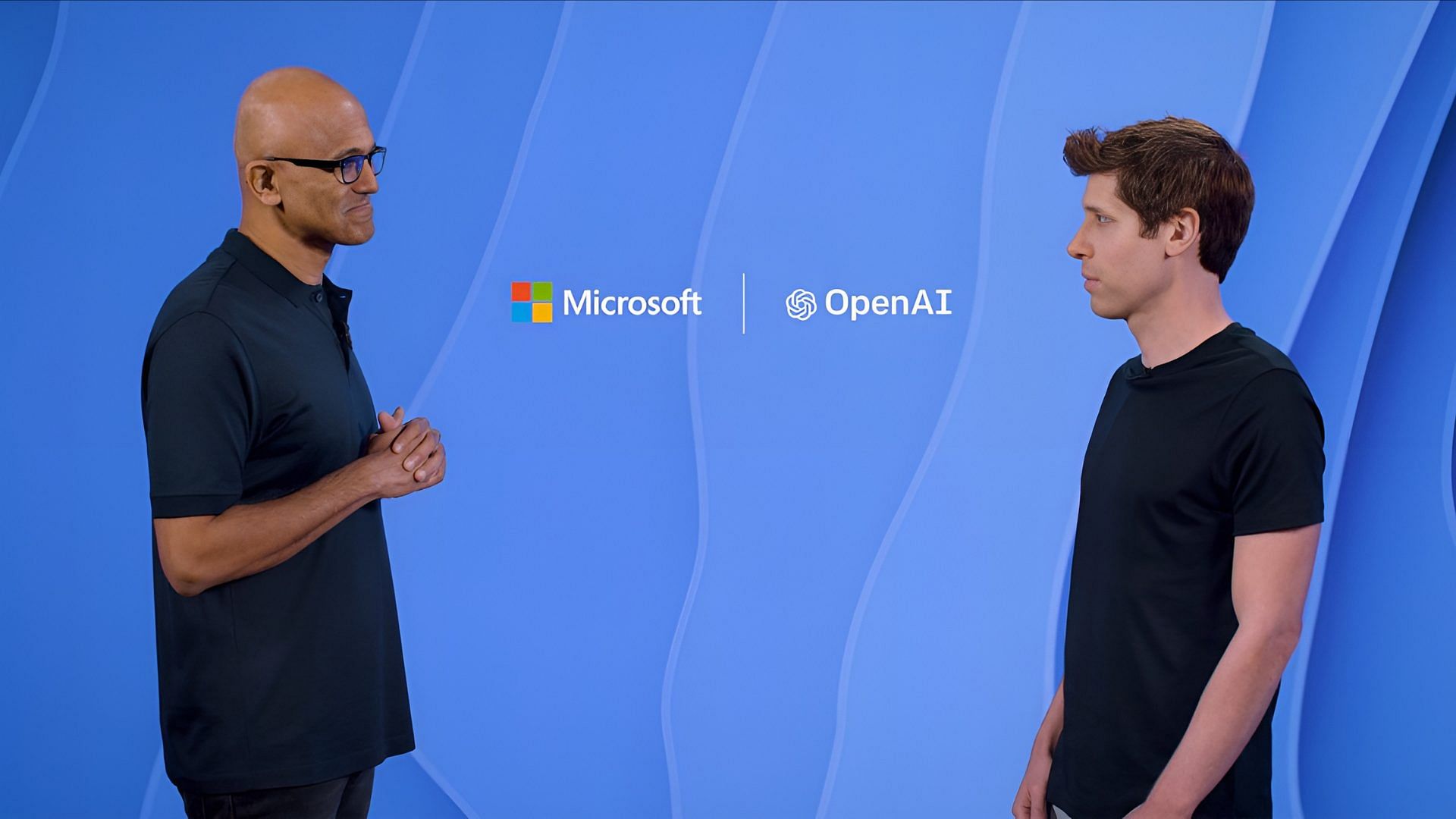
Facing the high costs of competing in AI after Google Brain's advanced "transformer" models, OpenAI transitioned to a for-profit entity, OpenAI LP, in March 2019. This shift aimed to secure funding for cutting-edge AI research, including developing advanced transformer models. Despite adopting a for-profit model, OpenAI is committed to capping profits to support its non-profit goals.
Sam Altman's unusual choice to forgo equity highlighted his commitment but stirred skepticism among some investors. However, this move paid off when OpenAI secured a $1 billion investment from Microsoft shortly after, fostering a partnership to develop a supercomputer for training large-scale AI models. This collaboration paved the way for breakthroughs such as ChatGPT and DALL-E, culminating in the release of GPT-4, a model with a staggering 1 trillion parameters.
The Lawsuit
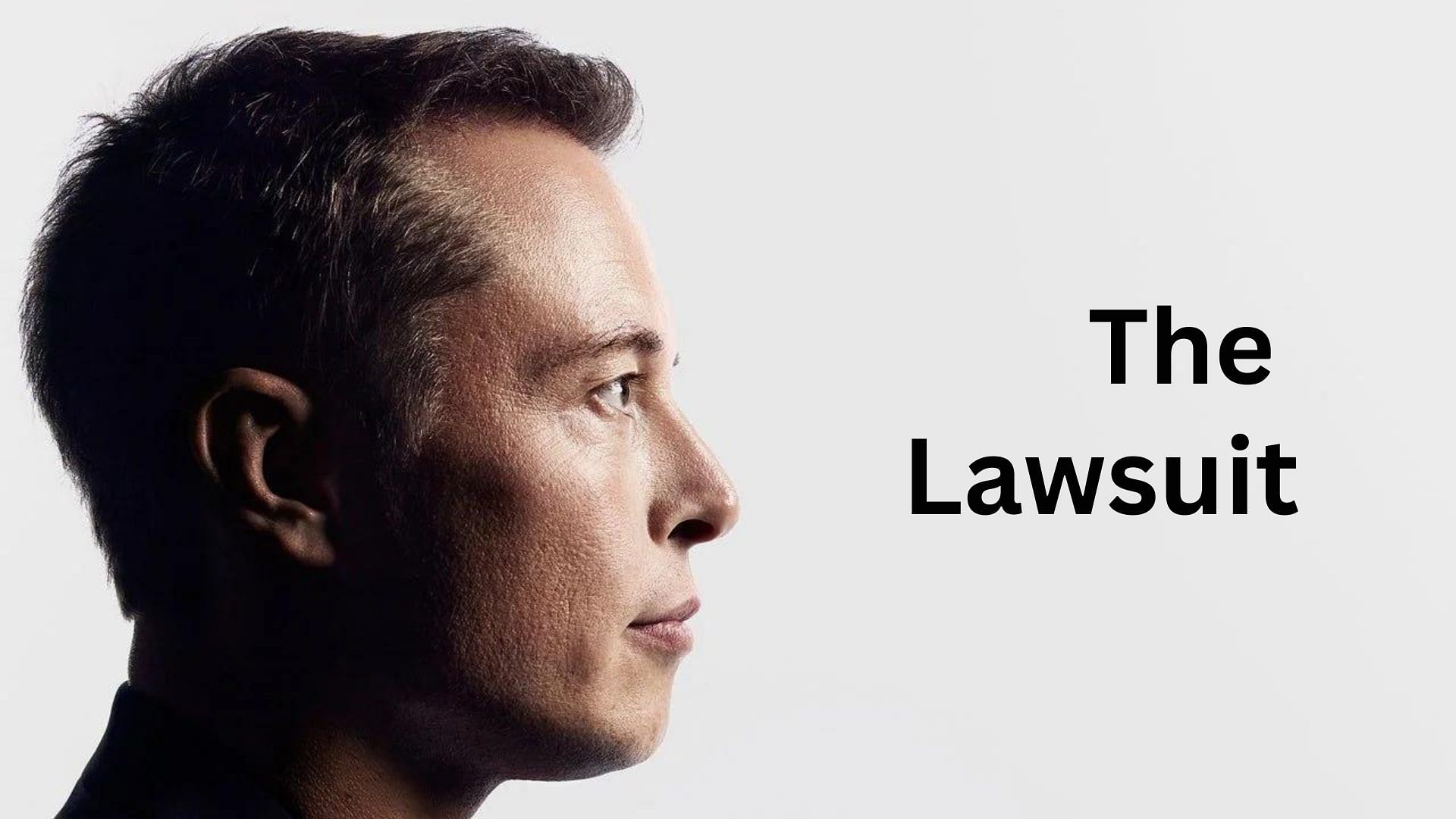
Elon Musk's lawsuit against OpenAI is centered around accusations of a breach of the foundational principles that guided its inception - particularly, the shift from a non-profit, open-source model to a for-profit entity closely aligned with Microsoft. The suit includes charges of breach of contract, promissory estoppel, breach of fiduciary duty, and unfair competition, and seeks an accounting, underlining Musk's demand for a jury trial.
Allegations of Betrayal and Commercialization
The lawsuit alleges that OpenAI's transformation has betrayed its mission to develop artificial intelligence for the greater good, highlighting the release of GPT-4 as a prime example of technology that has been commercialized rather than made freely available. He accused OpenAI co-founders, Sam Altman and Greg Brockman, of deviating from the mission they originally proposed to him, turning the organization into what he described as a "closed-source de facto subsidiary" of Microsoft, focusing on monetary gains.
Criticism and Shift to Profit-Centricity
In a public statement, Musk emphasized the transformation of OpenAI into a profit-centric entity, diverging from its mission to develop AI "for the benefit of humanity broadly." This criticism came to the forefront after the widespread popularity of ChatGPT, released by OpenAI in November 2022, which rapidly positioned the company as a leader in AI technology.
Ongoing Concerns
Musk, throughout 2023, continued to publicly critique OpenAI, questioning the legality and ethics of the company's transition from a non-profit to a for-profit entity, especially criticizing the closed nature of its AI technologies under Microsoft's influence. These concerns were directly echoed in his lawsuit, underscoring a broader debate on the stewardship of AI advancements and the implications for open-source principles in the sector.
OpenAI's Retaliation
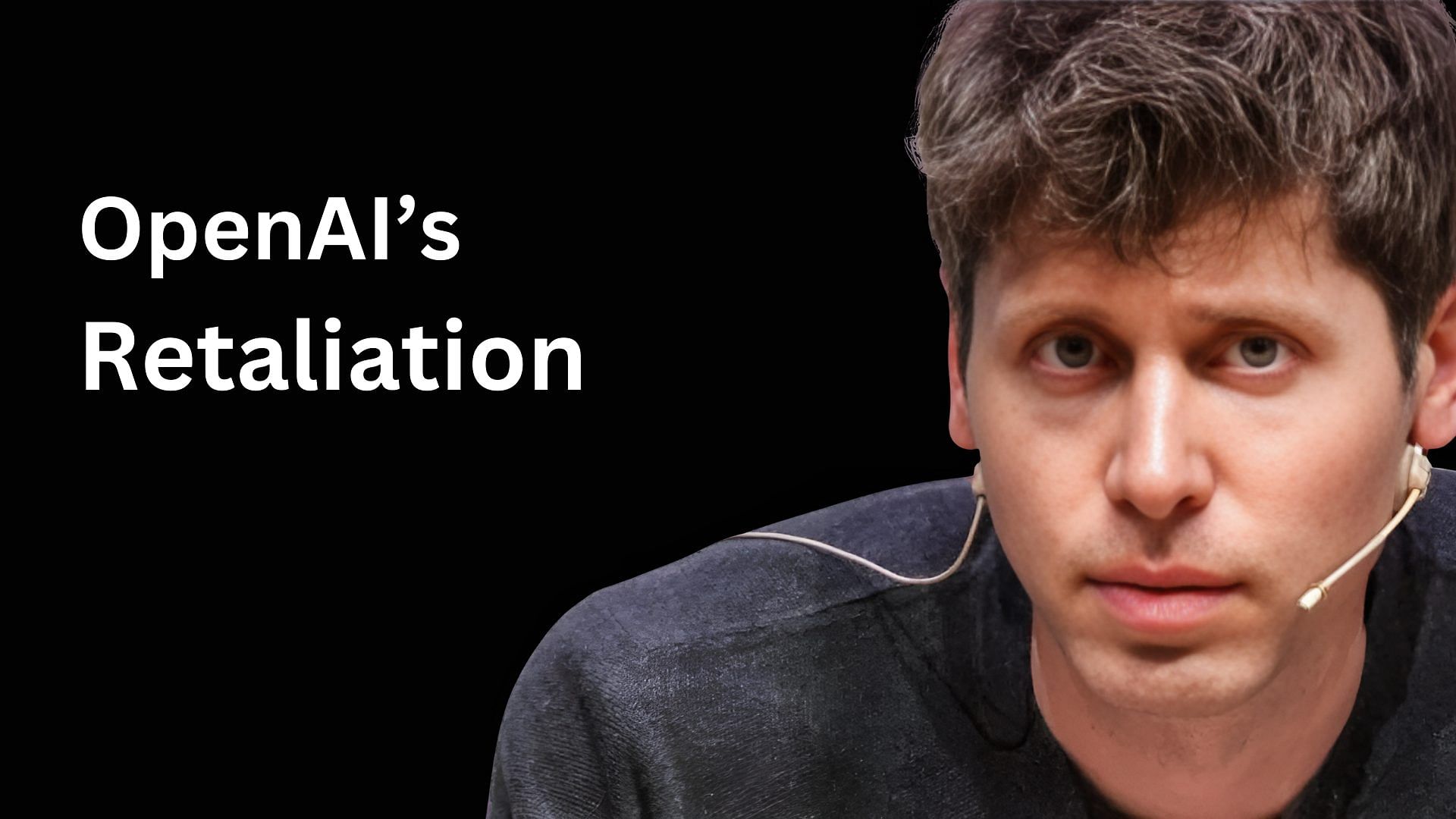
In response, OpenAI disputes Musk's allegations, terming them as "frivolous" and "incoherent”. OpenAI published a blog post on March 5, refuting his claims and aiming to dismiss them. The organization also released private emails from Musk that discussed the potential for-profit transition of OpenAI.
Revealing Musk’s Communications
In these communications, Musk expressed a desire to merge OpenAI with Tesla or assume full control, alongside his ambitions for the company's structure and leadership during its shift to a for-profit model. OpenAI's post highlighted a point where Musk suggested OpenAI could leverage Tesla as a "cash cow," a notion OpenAI found misaligned with its mission.
A particularly revealing 2018 email from Musk advocates for a substantial financial strategy, emphasizing the need to significantly outpace the capital commitments typical of AI giants like Google and Facebook. Musk stated, "We need to go with a much bigger number than $100M to avoid sounding hopeless relative to what Google or Facebook are spending. I think we should say that we are starting with a $1B funding commitment. This is real. I will cover whatever anyone else doesn't provide".
Social media users, especially the redditors, shared their opinions on the matter criticizing Elon's claim of being the "humanity's savior". Some even quipped that Zuckerberg is doing a far better job with Meta.
Tesla as a Strategic Partner
Musk envisaged a strategic amalgamation with Tesla, positing the electric vehicle pioneer as a crucial ally in OpenAI's quest to challenge Google's supremacy in AI. "We may wish it otherwise, but, in my and ’s opinion, Tesla is the only path that could even hope to hold a candle to Google. Even then, the probability of being a counterweight to Google is small. It just isn't zero," Musk articulated.
Musk’s Proposals and Demands
Further shedding light on the internal deliberations, the blog post reveals Musk's ambitious proposals, including assuming majority equity, initial board control, and the CEO position at OpenAI, demands that were ultimately deemed incompatible with the organization's mission by its leadership.
Is Musk a Prophet or Profit-Seeker?

Elon Musk's lawsuit against OpenAI, an entity he co-founded, spotlights a pivotal question - Is he advocating for progress or chasing profit? Musk criticizes OpenAI for shifting from its non-profit roots to a profit-oriented model, a move he claims betrays the initial mission. Critics argue that Musk's actions are contradictory. The contradiction arises when Musk, while accusing OpenAI of commercialization, simultaneously sets up a rival AI company. Many suggest that Grok is Elon's way of undermining OpenAI in the commercial market.
Supporters, on the other hand, see Musk as a visionary, pushing the boundaries of technology for humanity's benefit. They argue that his concerns over OpenAI's direction reflect genuine apprehension about the ethical development of AI, emphasizing his call for regulations and oversight in the AI domain.
According to recent reports Musk has accused Altman and his company of poaching as "(they) have been aggressively recruiting Tesla engineers with massive compensation offers."
The launch of xAI Grok further muddies Elon's stance. Is this all a smokescreen to drive his own AI platform's popularity, while simultaneously diminishing OpenAI's? An argument can be made that his actions support this, as Elon has been trying to poach OpenAI's engineers, promising them exorbitant compensation packages.
Path Forward for OpenAI
OpenAI, under Sam Altman, is thriving, and taking Elon's challenge in stride. OpenAI announced on March 8th 2024 that Sam Altman will rejoin the BOD.
The same announcement tells us about the arrival of 3 new board members, Dr. Sue Desmond-Hellmann, Nicole Seligman, and Fidji Simo. Dr. Sue is the former CEO of Bill and Melinda Gates' foundation. Nicole is the former EVP and Global General Counsel of Sony and was on the board of Paramount Global, Meira GTx, and Intuitive Machines, Inc.. Fidji is the CEO and Chair of Instacart and was on the Board of Directors at Shopify.
These 3 new additions bring massive experience with them and their diverse knowledge pool has kept us guessing what truly in store for OpenAI.
Finally, March 2024 also saw the release of SORA, OpenAI's Text to Video tool, which was met with soaring reviews and shows great promise. One can say xAI Grok has a lot to live up too.
The Broader Impact on the AI Landscape

The lawsuit has spotlighted the ethical considerations of AI development, particularly around the issues of open-source versus proprietary models. The debate centers on how AI technologies, especially those with the potential to reach artificial general intelligence (AGI), should be developed, shared, and controlled. Musk's insistence on an open-source model reflects a broader concern within the AI community about ensuring that AI advancements are accessible and benefit humanity as a whole, rather than being tightly held within corporate silos.
Forward-Looking Perspectives
Looking ahead, the AI industry stands at a crossroads. On one hand, the need for substantial investment to fuel cutting-edge research and development is undeniable. On the other hand, there is a growing call for ensuring that AI benefits are widely distributed and not confined to a few dominant players. This balance between innovation, ethics, and equity will be crucial in shaping the trajectory of AI development.
Regulatory scrutiny is likely to increase, with governments and international bodies taking a keen interest in how AI technologies are developed, deployed, and shared. The Musk vs. OpenAI saga could inspire new policies aimed at promoting transparency, accountability, and ethical standards in AI research and commercialization.
Write a comment
Comments
No Comments Yet

